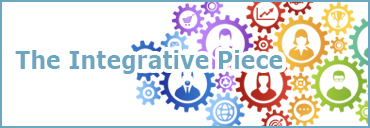LOADING
Share

“Mind is the Master power that moulds and makes,
And Man is Mind, and evermore he takes
The tool of Thought, and, shaping what he wills
Brings forth a thousand joys, a thousand ills: –
We think in secret, and it comes to pass:
Environment is but his looking glass….”
– James Allen, Author and Poet (1902)
We can’t all be artists or writers, but what we can create is a positive mental narrative of situations, good or bad, that we find ourselves in daily as we weave in and out of pathways that reflect our lives’ changing circumstances.
Sadness, anxiety, disempowerment, and constant stress are all changing emotional feelings which often lead to a manifestation of negative physical symptoms, especially since these feelings carry with them a negative charge.
When shifting from here to there seems like wading through quicksand, this may be the perfect time to suggest or try acupuncture. Acupuncture works by changing energetic pathways, which line our bodies like a grid. The bendable metal needles, when placed strategically on the body, create a powerful magnetic pull which shifts the flow of our body’s energetic pathways carrying and circulating qi, blood, and oxygen. This flow taps into both our limbic system and our auto immune system, stimulating powerful feel-good hormones and endorphins.
After a treatment, most people experience a profound sense of relaxation and an openness to look at situations differently. In cases of chronic illness, a restoration to healthy equilibrium can begin.
Time after time I have watched emotional reframing occur in patients following an acupuncture session. Acupuncture can be particularly helpful for those facing chronic illness or suffering from ongoing negative “cognitive biases” which can often spiral into hopelessness, addiction or suicide.
A constant spinning of disappointments often changes into positive awareness when renewed energy is shifted within the body. New ideas, inspiration, and change become possible even when the thought of change can seem daunting.
A recent study showed that when curiosity and creativity are present in our thinking, the reward centers within our brain are activated. Interestingly, this study from the University of Georgia also found that the same centers were indeed activated with the same dopamine response, accompanied by negative thoughts, experiences, and behaviors (Georgia Health Sciences University, 2011).
It seems that negative and positive behaviors give the body the same sort of chemical charge. Through repetitive practices, positive or negative thought patterns can give us the same charge (e.g., increased heart rate or a rush of power). This is all the more reason to master control over our thoughts, actions, and deeds.
Such was the case with Greg, a forty-year-old surfer who suffered from depression, anxiety, and a fifteen-year heroin addiction. He regularly attended Narcotics Anonymous (NA) groups and had a long-time sponsor.
Greg wanted to stay clean for himself, his wife, and his family, and had many months of sobriety through the years. However, when his anxiety, fear, and negative thinking overcame him, he would always revert to drug use to calm his inner demons. Real lasting change seemed daunting and almost impossible to him.
Greg came to me because he was afraid one of his kids would find him dying with a needle in his arm. Acupuncture really helped him relax, calm his mind, control his addiction, and shift from fear to calm empowerment.
I put Greg on an herbal formulation immediately and gave him nutrients geared toward nourishing his mind and revitalizing his nervous system. Greg used the time during his acupuncture treatment—a time when he was already very relaxed—to learn breathing and meditation techniques. This helped to calm and empower him when he became anxious and afraid.
He added twice weekly sessions with a therapist who is teaching him and his wife cognitive therapeutic techniques. He also changed his sponsor. In addition to surfing, he added more cardio and yoga stretching to his exercise regime.
Two years later, Greg has not had a single relapse. We have started to work on his nutrition as well as his sugar addiction. He has begun to look at shifting his choices as a “want to,” not a “have to.” He has learned to care for himself in a loving, powerful way. These new healthy habits have replaced his unhealthy ones.
By embracing and empowering healthy living and thinking habits, along with an ongoing meditation practice, we give ourselves permission to creatively control outcomes in our life. We come to know full well we did our best in the here and now, which in turn creates a better future for us all.
“A man is literally what he thinks, his character being the complete sum of all his thoughts.” – James Allen (1902)
References
Allen, J. (1902). As a man thinketh. Retrieved from http://james-allen.in1woord.nl/?text=as-a-man-thinketh
Georgia Health Sciences University. (2011). Brain’s ‘reward’ center also responds to bad experiences. Retrieved from http://www.sciencedaily.com/releases/2011/02/110222121913.htm
Previous Article
“Never Again:” An Excerpt from Bullying Under Attack
Next Article
Rating the Emotions of Your Clients








 Counselor Magazine is the official publication of the California Association of Addiction Programs and Professionals (CCAPP). Counselor offers online continuing education, article archives, subscription deals, and article submission guidelines. It has been serving the addiction field for more than thirty years.
Counselor Magazine is the official publication of the California Association of Addiction Programs and Professionals (CCAPP). Counselor offers online continuing education, article archives, subscription deals, and article submission guidelines. It has been serving the addiction field for more than thirty years.